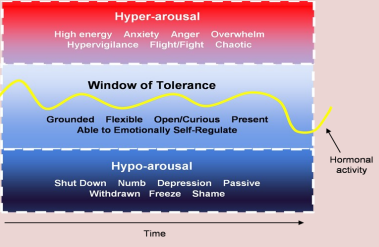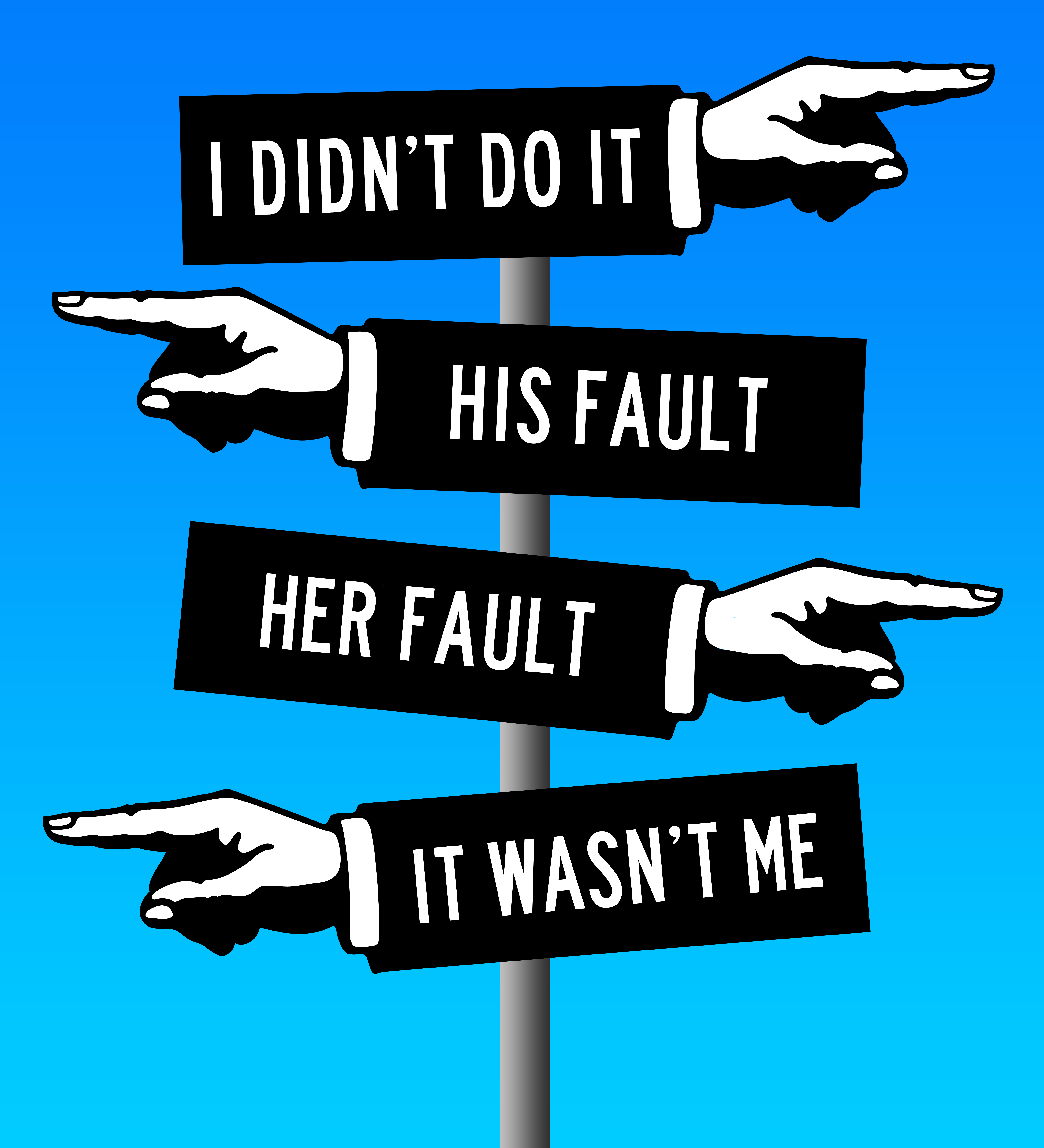Four Types of Cheaters, All Lie, Here’s What to Do.
No Matter How Bad Your Spouse Is, There’s No Excuse.
If I could take one painful marital scenario away from the planet, it would be cheating and infidelity. Any marriage therapist who works with couples will see a lot of it, and helping a couple in the short term will be dependent on the cheater’s actions during and after the affair. A therapist can also manage the conversation about the affair in a way that promotes healing and recovery and doesn’t make matters worse. To manage infidelity on your own is the equivalent of doing brain surgery on yourself — expect irreparable damage, everlasting trauma, an inability to function well, and possible death.
People usually cheat for several reasons: either they are sex addicts and can’t help themselves, or they become disgruntled in their marriage because they didn’t get their needs met enough, or they are sociopaths with no conscience.
In the case of an unacceptable marriage or marital sexual relationship, and even if it is a sexless marriage, cheating can be the most misguided passive-aggressive response to unhappiness there could be. Dealing with marital issues head-on would have been the only healthy action, no excuses.
Yes, you could have spoken out; what if you had just told your spouse that if things didn’t change, you were worried you might reach out to someone else, or, if you don’t like marriage and wanted to be single again, you could have ended your union before hitting the dating or sex circuit. But the bottom line is that most people tend to dive straight to disaster, telling themselves the lie that it’s the easier and better way. I have news for you, it’s not.
In addition to the scenarios above, I have seen a couple of cheating incidents where one person was such a pleaser that when hit on by an aggressive pursuer, they didn’t say no because they didn’t want to hurt their feelings. Good God, people. More on that one later.
Cheating pain may be at the top of the emotional hurt list, right up there with losing someone you love.
When someone cheats, the pain felt by the other spouse is unexplainable. There are no words for the inferno of rage, sadness, and pain often felt. It is a violation of a sacred trust; I am so sickened by seeing it as frequently as I do that I’d do anything, ANYTHING, never to see it again, and I don’t want to have to quit the profession I am passionate about to avoid it. What I want is for the cheaters to stop cheating. If history predicts the future, that won’t happen, but we could all stop cheating with cheaters. That would be helpful. Again, I can always hope for a kindler, gentler, more mature world.
All cheaters lie about cheating and minimize the importance of it. If Mother Theresa cheated, she would lie about it. The Pope would, too. Don’t believe a word a cheater says to you about the cheating or when answering the question of if they did cheat. Instead, please do your own fact-finding, or save some time and energy and assume the story is as bad as it gets because it usually is.
What cheating does is destroy trust, and trust is necessary to have a healthy marriage. Lack of trust creates a big problem and trickles down to more and more problems until layer upon layer of problems are piled on top of one another. The marriage counselor must bring in a 500-pound sack of tools and heavy machinery to start clearing the damage and finding out what caused the accident. The marital felony incident may be a symptom of underlying issues and a marriage that wasn’t working, but it says nothing about the marriage itself. Either person or both could be the primary marital problem child; the therapist will figure that out in time. The one thing that is always true is that there is never an excuse for it.
The Three Cheating Scenarios
Today, I will go over and describe the three scenarios mentioned above, plus the nice guy cheater, and tell you how each could have been handled in an appropriate adult-like way. You know, how it might have gone down in the ideal world where people have integrity, do the right thing, deal with their issues head-on, and ensure they’re healthy enough for marriage before marriage. Yes, it’s a marriage therapist fantasy, but it’s January, and I’m hoping for miracles.
1. The sex addict.
A sex addict is obsessed with sexual thoughts, urges, and experiences. It may be close to all they think about. This may lead to excessive or dangerous masturbation, engaging in risky sexual behavior, frequent cheating, prioritizing sexual events and encounters over other life events, feeling shame or depression about all of that, and going into withdrawal when they aren’t able to have their sexual fixes due to an attempt to abstaining or it not being accessible. (1)
When clients tell me things like they need sex three times a day or any number of times a day or they can’t be okay, I start thinking of sexual addiction. It’s OK to love sex, of course, and the majority of humans do, but to depend on it daily for your well-being is a huge problem, and if you’re in a relationship, it often becomes someone else’s problem, too.
The cycle of sexual addiction is — the obsession to attain the feeling or high, acting out on it, feeling shame about it, and then slowly returning to the obsession.
The shame piece tells us they feel guilty and know it is something they should not do. The obsession and inability to control the obsession, combined with how it negatively affects their life, defines it as an addiction.
Sex addicts have told me repeatedly that it is the pursuit of sex more than the sex itself that charges them. Like a lion lurking quietly toward a sleeping prey, they find their mark and find ways to finesse them to bed. Their sexual threshold would be nonexistent, as nothing will keep them from their daily dose of sexual, physical contact.
If the addict is not pursuing anyone, they may turn to porn, masturbation, or something else to keep the high going. Although I don’t usually think of those last two things as cheating, they can start creeping into that category when it affects your relationship with your partner negatively, and the porn you are looking at is something over the top or involves live interaction.
Whether a sex addict knows they have a problem or not is a good question. It’s all they’ve ever known for most, so they have nothing to compare it to. My educated guess is that internally, they know it’s a problem and not acceptable, but externally, they will deny they have a problem for as long as they can get away with it. Addicts are liars; they protect the part of themself that is an addict with all the fervor of an animal protecting its cub, whatever it takes, the same as the sun comes up from the east.
In my imagination, I see a person’s healthy self in a battle for dominance with the sex-addicted self. Unfortunately, until something is done to force the healthy self to stop wrestling and use deadlier force to eradicate the part of them that is self-destructive or get it to go into remission, the back and forth between the two will continue.
In most cases I’ve seen, the issue began in childhood when the young person was exposed to sexual content such as pornography use or had experiences, including sexual abuse before they had the cognitive abilities to process it healthily. Some children know they’re being abused, it’s wrong, and they don’t like it all, but others enjoy how it makes them feel more than they worry if it’s a bad thing to do. It’s the latter category that has the most significant potential to become sex addicts, in my experience.
I once spoke with a client who had lived in Mexico as a child, and the boys in his coastal town enjoyed playing with one another’s bottoms and the orifice found there. He loved how it felt, though he was not homosexual. It made him obsessed with getting that feeling as often as possible, though, and that became his sexual preference and obsession. He could stay settled if he could get his wife to play with that area numerous times a week. If not, he’d find someone who would.
It was a very sensitive topic, as you might imagine; his wife wanted what she thought of as an average, regular sex life and wanted to meet his basic physical needs, but she did not want to talk about or understand his strange request and wished it would disappear. The end result was two unhappy people, all caused by his sexual addiction, and when she found out he was indulging in his sexual favorite sexual activity with or without her, their marriage was on the line. The thing about addicts is that they will get their fix, no matter the consequences, because the compulsion overrules good sense.
Other scenarios that might ignite a sexual compulsion are brain-oriented dysfunction, abuse or neglect in childhood, a search for spiritual connection, an aversion to intimacy, trauma-triggered, and mental disorders such as depression. Whatever the reason, it’s an escape from deep emotional pain.
It is exceedingly difficult for a sex addict to go into recovery, and the only way is an intensive, specialized therapy for sex addicts and an ongoing 12-step program with a sponsor. If I found out my spouse had this issue, I would require this, or I wouldn’t want to stick around.
Sex addict therapist’s fantasy: A person realizes early in life that they are obsessed with sexual stimulation and pursuit of that stimulation. They notice that they don’t want to do much of anything else, and it concerns them. As if having a chronic sore throat, they tell themselves, “This isn’t right; something is off here. Maybe I should go talk to a physician or therapist,” and they do. The health professional tells them what healthy sexuality is, and the person says, “Oh my, well, let’s do something about this because I don’t want to inflict this problem on anyone in the future. It could destroy people I love and cause me to do things I wouldn’t want.” The person begins a 12-step program and begins recovery. Future family and personal disasters are averted.
2. The disgruntled spouse cheater.
It’s a rare person who isn’t unhappy in their marriage at one time or another. Many have a high threshold for tolerating this, and others do not. No matter how high their expectations are or how easily they may become disillusioned, I’ll never understand why so many people struggling in their marriages don’t seek professional help to sort through it, but most don’t. I sincerely believe that 90 percent of cheating could be averted if they had.
So much of the marital strife I see is over misunderstandings and an inability to communicate effectively. How often have I heard one spouse say their wife doesn’t care when it is evident to me they do? Or, they need more physical intimacy or more exciting sex lives, but they keep this information to themselves. A person who wrongly feels unloved or sexually starved frequently seethes in resentment over unmet needs and wants and is likely to develop a sense of entitlement that tells them they deserve to go out and get what they want and need in any way they can. That voice of self and relationship destruction that leads errant spouses into another person’s arms is from the dark side and is quite good at luring people into the cheating arena.
As I said, the personalities that don’t express their basic needs or wants to their spouse and still resent them for not meeting them are on a path to marital disaster. I call folks like this marital problem children because they create problems unnecessarily. The stance of not speaking out and advocating for themselves and being pissed about what they don’t get is as laughably ridiculous as it is dysfunctional. Listen up: If you don’t have the spine to tell your partner what’s going on with you and tell them what you need, then you are not grown up enough to be married.
This type of person develops a strong sense of justification and often covertly goes out into the world to find temporary happiness with someone else. I say temporary because, in time, the new lover will fail to please them, too. Why? Because they still don’t tell them what they want and need. These are people whose relationship licenses should be revoked until they successfully attend a class on how to be a grown-up.
The disgruntled cheater needs to go to individual therapy and get healthy enough to deal with things directly. Even if you are this way and haven’t cheated, the best thing you can do is that at a bare minimum. Disgruntled cheating is a sign and symptom of your dysfunction, and without professional help, you probably will never change.
The Window of Tolerance.
The window of tolerance is an important concept to understand in life and relationships. Developed by Dan Siegel, executive director of the Mindsight Institute and former Clinical Professor of Psychiatry at UCLA, it’s a concept with a graphic that explains a human’s ability to thrive in everyday life. Three horizontal bands illustrate a human’s nervous system, and the center band is the area in which we are calm and able to function in almost every way.
For example, after many years of working on myself, my window of tolerance is quite large, and as a result, I remain calm most of the time, with actual survival threats being the main exception.
Healthy adults indeed have a very wide window of tolerance, as I do, so it takes a lot for them to get hyper-aroused (upset, overwhelmed, activated, anxious) or hypo-aroused (shut down, numb, depressed). Imagine the center band below is twice as tall as it is so that the window of tolerance is huge; that is what therapists seek for their clients, which is ultimately an ability to stay in the window of tolerance in almost every case of their daily living, and where falling up into hyper-arousal, or down into hypo-arousal, is rare.
The smaller a person’s window of tolerance is, or narrower it is, the less tolerant of stimuli they are. These people we all know are hyper-sensitive, quick to explode or be angry, collapse, become despondent, and be on guard for the next perceived slight or catastrophic event.

I wanted to show you the window of tolerance so you might understand the disgruntled person who justifies cheating on their spouse at a slightly more profound level.
I have had (short) relationships with men who were constantly upset about something and creating unnecessary drama, which tells me that they had a very low window of tolerance. One in particular cheated on me regularly, I found out later. I am married now to a man with a very tall or broad window of tolerance. He is easy to live with and is solidly monogamous.
The person with the smaller window of tolerance is more likely to cheat than the one with the wide window of tolerance. This, combined with the inability to bring issues to the forefront and discuss them, creates the perfect personality for potential cheating.
One more thing: trauma therapy helps people enlarge their window of tolerance. Not doing healing work can cause a person’s window to narrow. I implore anyone who reads this to work on this if they have any issues in this area. The end goal for all of us is to have a peaceful life, and having a wide window of tolerance makes all the difference.
Disgruntled spouse cheater therapist’s fantasy: First scenario: “Man, I’m so unwilling to let people I am close to know how I feel or what I’m thinking. I wonder if this could be a problem. If I have a serious relationship in the future, I want to be vulnerable and transparent and express my needs and wants. I had better call a therapist and start working on this. I want to be as healthy as I can be mentally and emotionally before I get serious about anyone.”
Second fantasy scenario: “I am so unhappy with my wife Susan, and I think about other women. Good Lord, I do not want to cheat! I wonder why she won’t do something about her depression and loss of interest in sex. I need to talk to her about this and tell her I am struggling to stay focused on the marriage and that I need her to look into what is going on and see if she can get to feeling better. Maybe we should call a marriage therapist to help guide us in these conversations.”
3. The Sociopathic Cheater.
Yes, people who have antisocial personality disorder marry, but they don’t do it for the reasons the rest of us without this disorder do. These are more like con men and women who hide their evil under a false persona who is charming, likable, and lovely. They marry and cheat for one reason: Because they use people and they will do anything if it benefits them. A sociopath can act like they are in love, but they are not in love. They play a role, and that is that. We’ve all heard countless stories of these individuals who swoop in and marry someone, then wipe them out; it turns out later that they were married to two other people and doing the same thing to them.
Sociopathic therapist’s cheater fantasy: As much as I want to think of a fantasy, the only one I can think of is that this personality disorder would become extinct. These people cannot change; it is what it is, and I guess the best fantasy is that men and women recognize what’s going on before they get in too deeply and keep them out of their lives.
4. The Pleaser Cheater.
A couple of times out of several hundred others, I encountered individuals who were such pleasers that when a boundaryless person hit on them for sexual encounters, they decided not to say no because they didn’t want to hurt their feelings. One even kept the unwanted relationship going for 5 years because ending it would disappoint and hurt his paramour. (I guess he wasn’t thinking about how doing this would affect his wife).
As ridiculous as this sounds, I know people are capable of this reasoning because I frequently see it. Pleasers are a mess; if you are one, begin work on it as a high priority no more than five minutes after reading this article.
Pleasers swim in a sea of throwing themselves under the bus so others can be happy. Their entire goalpost for life is what other people think, and the thing that must be avoided at all costs is negative opinions and judgment and being seen as a bad person. Married pleasers are concerned with pleasing their spouse to a certain degree, but they live and die over the positive regard of biological family members, co-workers, and friends. A healthy boundary system designed to protect themselves from others is non-existent.
One man I am thinking of, Roy, was a policeman and kept thinking the woman he was cheating with would dump him at some point, and then the problem would be solved, but she never did. Pleasers love others to do the dirty work of things like being the first to leave, end a relationship, or take the initiative for a difficult conversation. Unfortunately for him, his wife found out about the affair and pulled him into my office by the nose. None of the other scenarios fit him, and I was puzzled about why he cheated on someone he adored. When he mentioned he kept putting off breaking the affair because he didn’t want to hurt the woman, I knew I was dealing with a pleaser cheater.
The cure for this problem is to go into recovery from pleasing and get intense therapy for codependence and childhood developmental trauma. It is past hurt and injury in childhood that turns people into pleasers.
The pleaser’s end goal is never to be hurt again or have to go through painful confrontations, and their strategy is to be such a good person that no one would ever be disgruntled with or hurt them again. Only a child would think that might work as a life plan. One strategy works in life: being truly you, showing up authentically, and speaking up when you have wants or needs. You have to be able to set boundaries and protect yourself and your family.
The two men I worked with who had this problem were living life with a substantial emotional disability. They were miserable and made the people around them miserable, which is the definition of dysfunctional.
Pleaser Cheater Therapist’s Fantasy. The pleaser cheater’s main problem in marriage is that they won’t protect themselves from the many boundary offenders who will see something they want and attempt to take it. They put the wants and needs of others over anything else, and even if they have a great relationship, they won’t protect it when an aggressive sexual vulture comes their way. The fantasy I have about that is that they might say this to themselves: “I had better get myself to therapy and figure out why I am allowing another woman to come into my personal space and violate my and my marriage sexually, and figure out why I feel guilty about saying no.”
Recovering From Infidelity.
There is a good chance a man or woman who has been cheated on will never fully recover, trust will probably never be the same, and whatever progress is made will take place over a long time.
Ironically, the cheater often becomes frustrated that the marriage can never get all its cylinders back in operation after such an event, but as I’ve said in other articles, once we show someone what injurious thinking and behaviors we are capable of, why should they dive right back into the deep end of the pool?
The best case scenario is that the cheating event was minor, there was no emotional connection, it was a brief and meaningless encounter, the cheater was mortified with themself once the affair was revealed and was able to understand what a big deal it is to their partner, and they are willing to do whatever it takes to correct the issues with themself and the marriage, and they do it. In these cases, real healing and recovery can take place. The others are likely to experience residual injuries.
Even with residual injuries, marriages can mature after such an event and go on to be significantly better than before. Cheating tends to wake people up from complacency and get them to reflect on how they’re living their lives, which may lead to significant changes. It depends on how it’s handled, the cheater’s attitude, the scorned’s personality and beliefs, and how large the window of tolerance is for each.
Blaming others for your unhappiness (and cheating).
If you’re unhappy in your marriage, do something about it. If you cheat, it is your fault and no one else’s. Even if your spouse is the worst person in the world, there is emotional abuse, you have choices, and no one forces you to be with that person. If that’s the case, leave your spouse and date once you’re single again. If you say, “Yes, but …” you can stop it right now; there still is no excuse for it. Even if the quality of sex is on the floor or there is a lack of sex, there is no excuse for cheating. Deal with your stuff and stop all of the justifications for cheating when there are none.
If you can’t work things out, leave. Get some therapy, get healthy, and dedicate yourself to figuring things out without cheating on your partner.
Get yourselves together, people. I’m genuinely sick of hearing about it.
(1) https://www.addictionhelp.com/sex-addiction/warning-signs/
Becky Whetstone, Ph.D., is a licensed Marriage and Family Therapist in Arkansas and Texas* and is known as America’s Marriage Crisis Manager®.
She is a former features writer and columnist for the San Antonio Express-News, and is the author of “I (Think) I Want Out: What To Do When One Of You Wants Out” published by HCI Books, distributed by Simon and Schuster, and to be released February 4, 2025. She will have a book signing event at San Antonio’s Twig from 11–1pm on February 22, 2025 if you want to meet her. Their event will be in the Pearl Brewery farmer’s market.
She has worked with thousands of couples to save their marriages. She can work with you, too, as a life coach if you’re not in Texas or Arkansas. She also has a YouTube Channel called Marriage Crisis Manager where she talks about relationships. She has a telehealth private practice as a therapist and life coach via Zoom. To contact her, check out www.MarriageCrisisManager.com. Also, here is how to find her work on the Huffington Post. Don’t forget to follow her on Medium so you don’t miss a thing!
- For licensure verification, find Becky Whetstone Cheairs.
- Marriage Crisis Manager is an Amazon affiliate and may receive a small fee if you purchase recommended books from our links at no extra cost to you.
If you enjoyed this, you might also enjoy:






